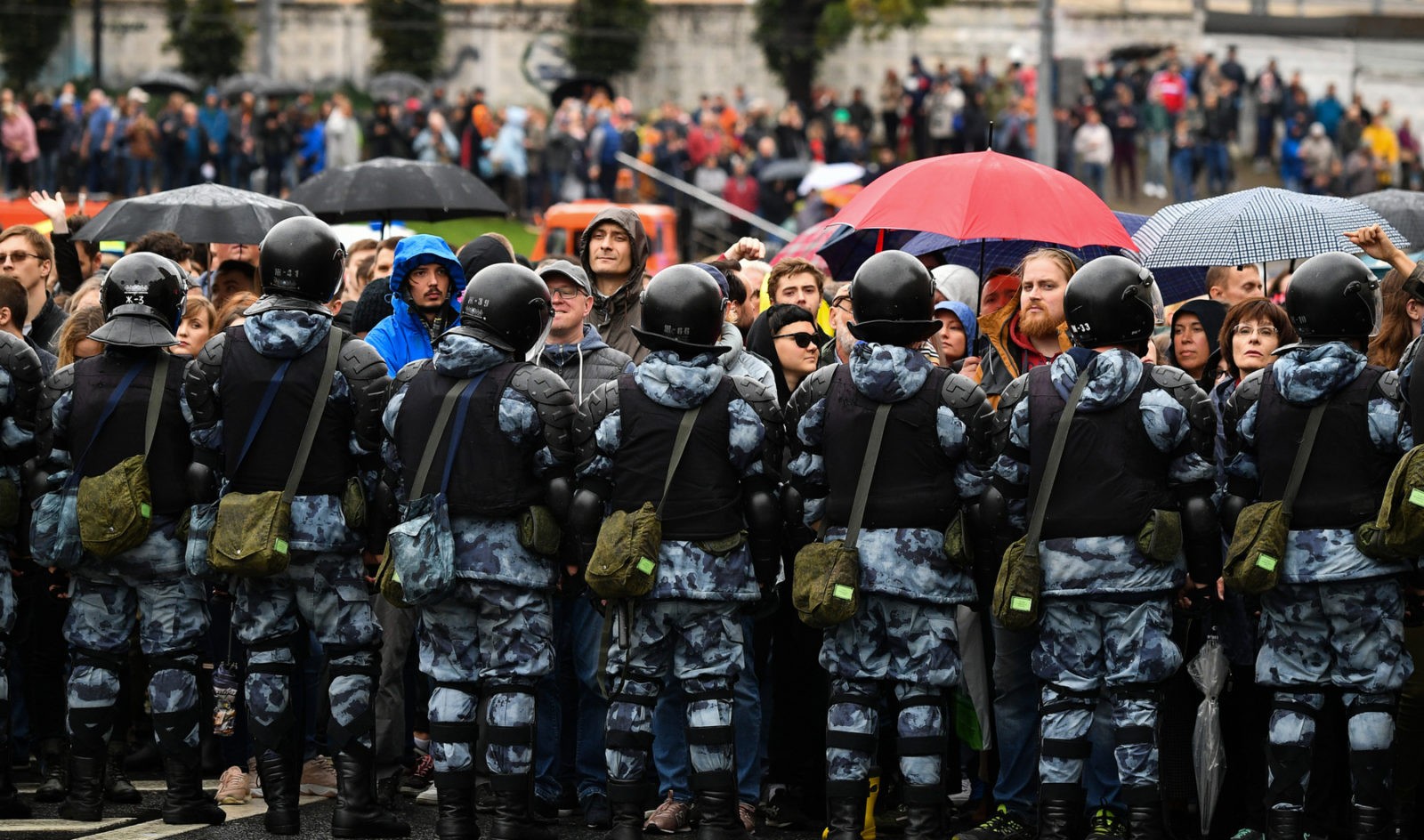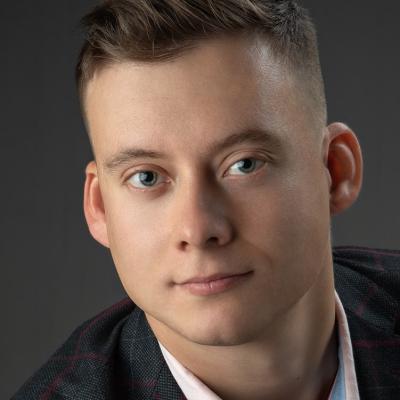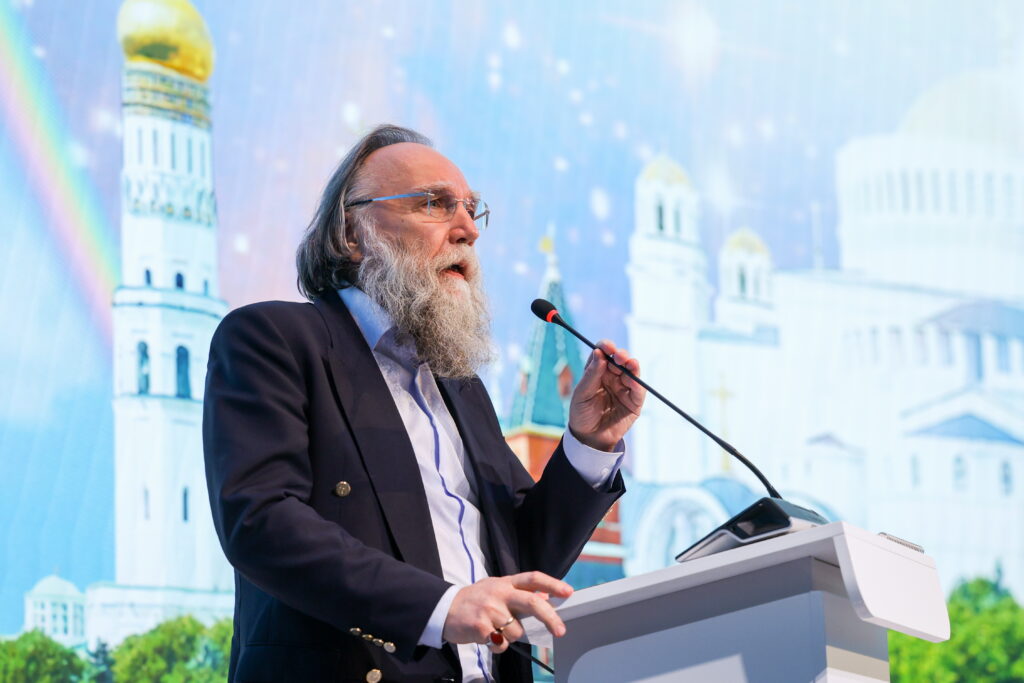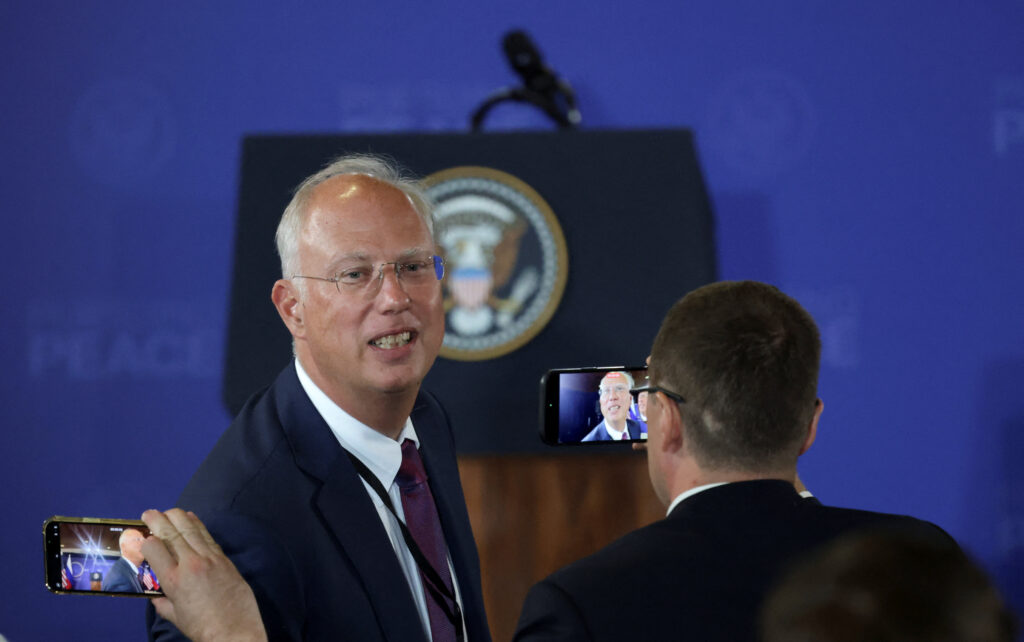It is surprising how after Vladimir Putin’s reelection in 2018, most political pundits and analysts flipped straight to discussing the incumbent’s “2024 problem.” Questions were about whether and how Putin will stay in power after this term. By and large, the half decade before 2024 — including the Duma elections of 2021 — was written off as a Putin procession.
Naturally, there are several events which some analysts have since seen as triggers for eventual and maybe even fundamental transformation of the Putin regime. Among these, the public indignation at the government’s pension age hikes; conflicts within Russia’s security services; or the broader rise of regional protests. But few were predicting any of these triggers to suddenly alter the state of the entire system. After all, totems of stability remain. There are still monetary reserves; the economy could be worse, with the country gradually adapting to life under western sanctions; and above all, the rise of the repressive capabilities of the state rationally dictate that we should rather be talking about a hypothetical “202X” as a time for major change rather than a conflict around, say, the Moscow Duma elections. But spare a further thought for the protests of July-August 2019. These do seem, at least in my view, to have shaken up the country. The effect is that disparate voices are speaking up. There are demands for the end of the repressions against Moscow protestors, call for the students across the country to be more politicized; from the other side of the fence, Duma deputies have started scouring for external meddling in Russian affairs, seeking to preserve a narrative of “defending Russia from Maidan.”
What sticks out among this variety of calls, dialogues, monologues, and ultimatums is the text of Sergei Karaganov, Dean of the School of International Economics and Foreign Affairs at the Higher School of Economics, founder of the Council for Foreign and Defense Policy and basically the creator of Valdai Club – in a nutshell, he’s one of the leading foreign policy experts in Russia.
His intervention here is an anomaly in lots of ways. Russia’s foreign policy community is not known for directly zeroing in on domestic affairs, especially when it comes to the opposition and protests against the Kremlin. Intergroup unwritten rules (mostly conceived by MGIMO alumni) dictate that a Russian foreign policy expert should concentrate on international issues of Russian national interest, its protection, and promotion. Thus the text of Russia’s leading foreign policy voice purports not to be about protests on the streets of Moscow, but formally about foreign powers attempting to use Russia’s weaknesses to stoke revolution.
The aftertaste of revolution
Even the most engaged political actors and activists — the ones being detained or active in getting the word out about who is protesting what and where — are not uttering the scary word “revolution”. The very essence of the July-August events is in fact the non-violent nature of the protestors. This contrasts with the disproportionate use of state repression. The Kremlin is putting forward ever-better equipped riot police onto the streets. (Effectively, that has meant the detaining of hundreds of people.) The default leader of the opposition, meanwhile, is still calling for electoral participation, urging “Smart Voting” against state-backed candidates. 2019 Moscow is clearly not 1917 Moscow. Nor is it Ukraine in 2013. There are no revolutionaries on the streets of Moscow today, there are simply people — citizens — who seek basic civic rights. To get tangled in analogies with Ukraine’s Maidan or France’s “Yellow vests” (this one is popular with Russian TV) is a misleading distraction.
Karaganov says otherwise. His text consciously links Moscow’s protests not even with Ukraine’s revolution of 2013, but with the Russian Revolution of 1917, when “students with their youth blood boiling, intelligentsia, liberal bourgeois came on the streets, demanding freedom and democracy and the departure of the tsar”. Karaganov reminds that after that came the incapable Provisional government that “led the way to Bolsheviks that, by the way, were supported financially by the German General Staff aiming to weaken its opponent”.
Move past how this narrative deprives the protestors of any of their own agency. What matters to Karaganov is to tie protests as such with coming of hostile outside political forces. The role of the German General Staff today is played by an “as yet highly influential part of the West,” which is fighting Russia “without moral principles, decency and rules”.
Paradoxically, Karaganov blames the West for provoking Russia’s security services to oppress protests in Russia in “hopes that by hindering necessary development, sidetracking the modernizers of the country, they will once again weaken it or even collapse it as it was in the late 1980s”.
This interpretation could have been considered if there truly were ongoing efforts to reform Russia, even in the framework of its current authoritarian regime: a set of actions aimed at better long-term conditions in the country. Yet, as Karaganov well knows, the last official attempt to stage any sort of “reforms” was made in the almost forgotten period of Medvedev’s presidency when in fact, Karaganov himself was lobbying for the “Union of Europe”.
Should we wonder if Karaganov — a prolific producer of reports and policy papers that delve deeply into the country’s economic development in its international context — is analytically incapable of seeing that the Kremlin today, indeed Vladimir Putin and his closest allies, have not engaged in any major national reforms for at least a decade? Surely not.
Karaganov, rather, is speaking his mind when he writes: “if the August events in Moscow, carnival-like they may be, would not become that thunder that makes the man, finally, cross oneself and start working, the country will face a miserable future. Including with regards to the foreign policy sphere which is important to me”.
So what’s the message?
Despite the fact that the form of the text is a call to deal with protestors that are backed by unfriendly foreign forces, its core unravels a tough criticism of Russian state and president Putin personally. No matter whether such a veiled critique was intended by the author or not, there are four further key takeaways:
- A foreign policy expert, who for the last five years persisted that Russia is wining in foreign policy, is openly suggesting that the resources to maintain this victorious escapade are fading away.
- The call for the “man to cross oneself” in this context. This is a call directly to a president leading Russia to “a miserable future” by not solving the problems of economic and social nature. Why does Karaganov believe the “man”, the president, can start over, or even drastically alter his policy, manages to elude me altogether; the policy so far is vaguely based on the principle “people will suffer what they must as long as the glory is preserved”. Only three years ago, Karaganov was rejoicing over the return of grand power status to Russian politics that according to him “should be taken as granted. Even if its realization and support costs demands a great pay”. Turns out now there are not enough resources to pay and the grand power status alone isn’t providing for the rest.
- Turning to the president again, Karaganov is marking those who showed be monitored in the first place: “when parts of the ruling elite also wore the red bowknots and joined them or simply refused to fight for the preservation of the state, then began the greatest tragedy of the XXth century”. One could think of a contemporary reference like Kudrin or Gref but it could very well be Mr. Chemezov who publically called in favor of an “alternative forces that consult and give signals to one direction or another”.
- It turns out the ice is truly thin in Russia. Judge for yourself, a top Russia foreign policy expert that knows revolutions of the last decades back and force is raising the specter of Red October after a group of independent candidates and their supporters protest the denial to run in the Moscow Duma elections. No victories in Syria or Ukraine or acquired “moral and political independence from the West” are capable of safeguarding the Kremlin from the problems at home.
Paradoxically, one might agree with Karaganov in some parts: years of prosperity were “worthlessly lost”, economic modernization was never fully achieved, social inequality and lack of mobility are worrying with its unpromising rootedness. So here is the question: what was the “man” doing all these years and where were the wise foreign policy councilors who preach the value of “grandpowerness” and pronounce their victories in the struggle against the West?
Karaganov is also right about one specific thing – the current state of affairs will eventually lead to a change of foreign policy towards the position that devotes less time and resources to shows of force. Any “next” foreign policy by default would demand skillful diplomatic efforts to move past some of the adverse consequences of the “grandpowerness” of the last few years.










